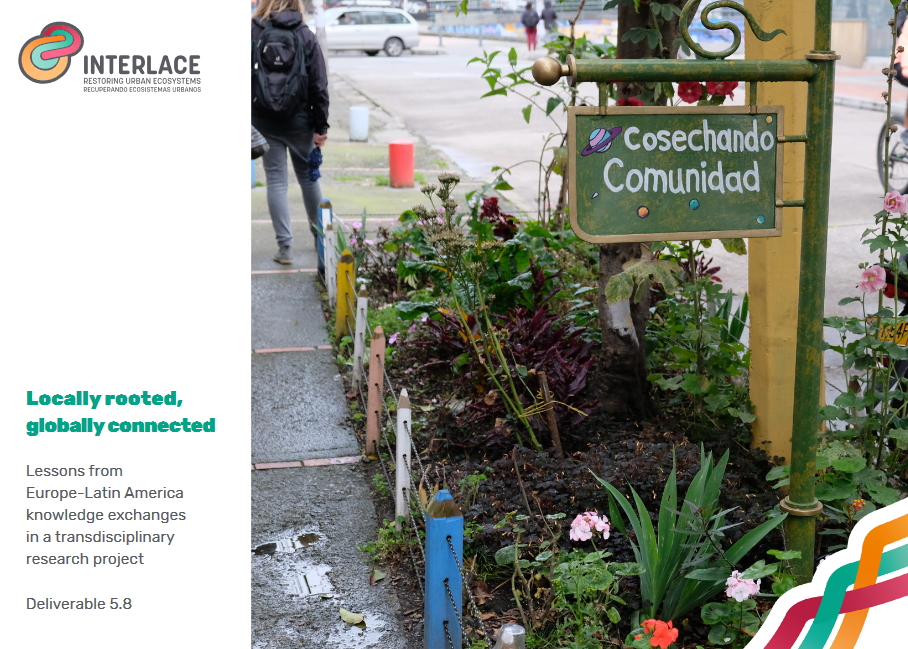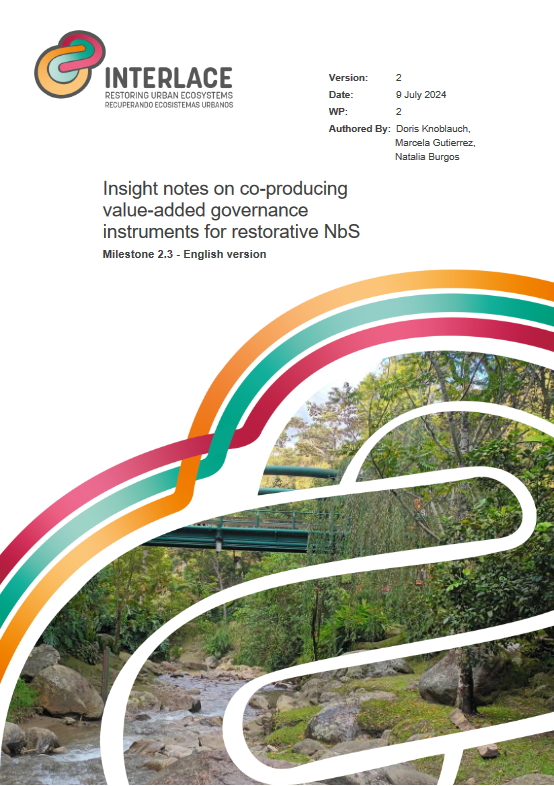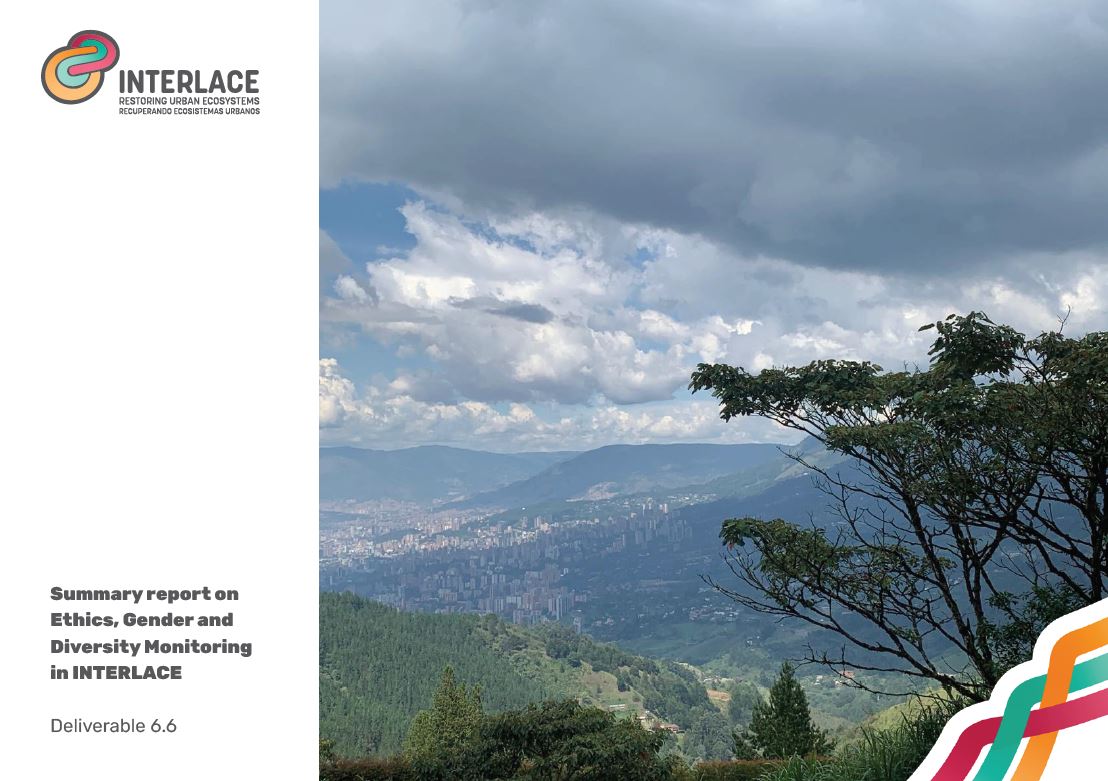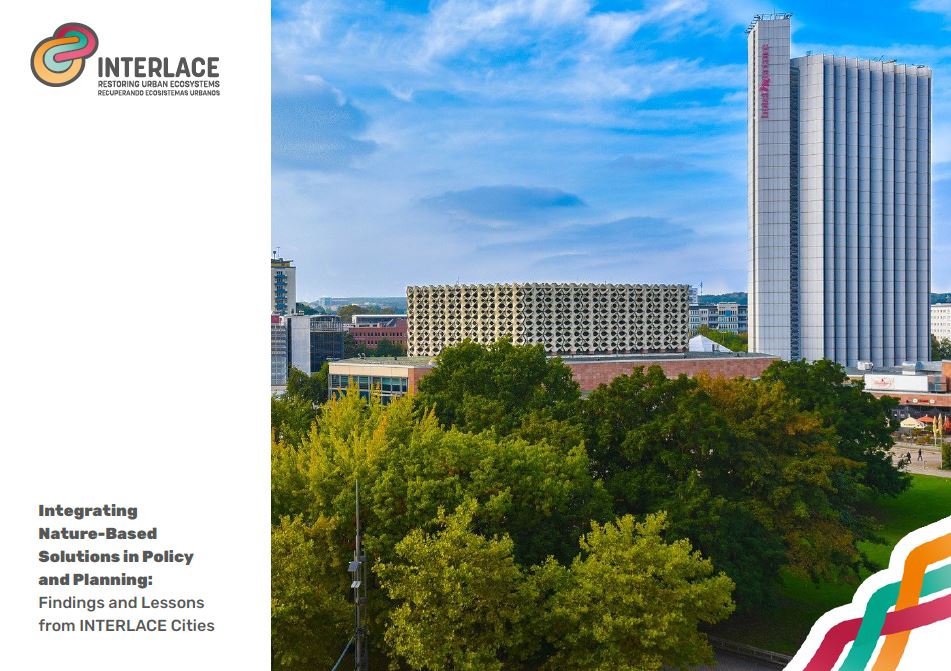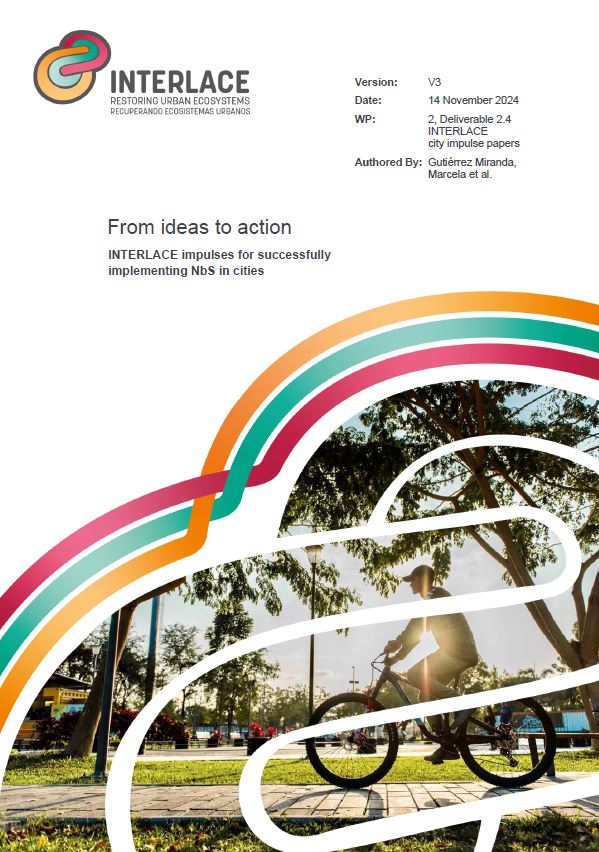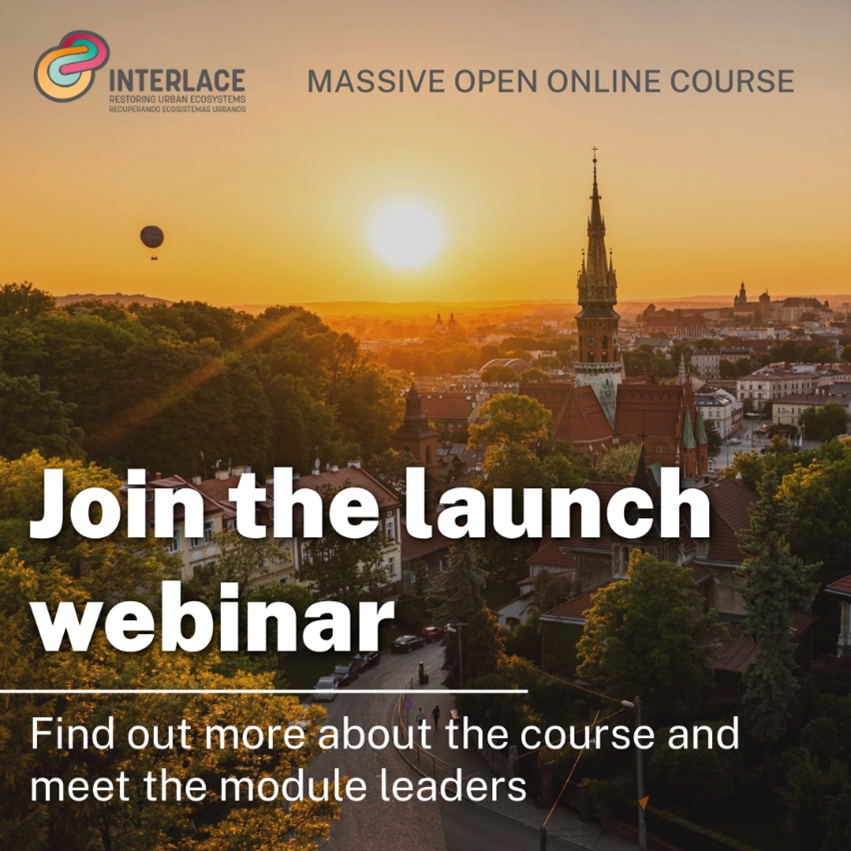© Ecologic Institute 2024
City Networks as Change Catalyzers
Strategies to drive action around nature-based solutions in municipalities
- Event
- Date
-
- Location
- Barcelona, Spain
- Speaker
On 15 May 2024, the INTERLACE project organised a city network exchange event titled "City Networks as Change Catalyzers: Strategies to Drive Action Around Nature-Based Solutions in Municipalities." Hosted by the INTERLACE partner United Cities and Local Governments (UCLG) and co-organised by Ecologic Institute and Climate Alliance, the event brought together over 20 esteemed city network representatives from Europe and Latin America to discuss opportunities and strategies for supporting nature-based solutions. Represented organizations included, amongst others, the Latin American Landscape Initiative, UN Food and Agriculture Organization, Metropolis, C40 Cities, European Urban Knowledge Network, CIDEU City Network, the UN-Habitat resilience profiling programme, and the UCLG Learning Team.
Participants reflected on and brought new ideas to a draft ‘impulse paper’ outlining strategies for city networks to promote nature-based solutions in cities. Key themes include:
- aim big,
- work together,
- tailor information and
- think long-term.
The event was opened by brief introductory talks by Sara Hoeflich, Assistant Secretary General from UCLG, McKenna Davis, Coordinator of the INTERLACE project and a Senior Fellow at Ecologic Institute, and Andreas Kress of Climate Alliance to set the scene for the interactive event. The speakers emphasized UCLG's dedication to advocacy and political engagement in promoting nature-based solutions and highlighting the importance of integrating these solutions into city planning and policy-making. Key activities of the INTERLACE project – which aims to strengthen urban ecosystem restoration in Europe and Latin America – were also presented, including opportunities for global cities to join the Cities Talk Nature community of practice around nature-based solutions. Finally, the critical role of city networks were outlined in the context of nature-based solutions, serving as the binding piece between motivation and political commitment to make innovative practices more accessible beyond beneficiaries.
The main part of the exchange consisted of an interactive discussion between participants about the draft impulse paper. Each group provided feedback, reflections from their experience and networks, and identified remaining gaps and opportunities, including:
- Enhancing collaboration across city networks that emerge as essential for supporting and sharing best practices
- Designing effective communication strategies, including the use of visuals and clear language, are vital for engaging cities and stakeholders.
- Promoting and recognizing efforts and highlighting the successes of cities in implementing nature-based solutions that can serve as powerful motivation for other municipalities to follow suit.
- Connecting to long-term thinking. Sustainable solutions require enduring planning and commitment that transcends political cycles. These insights underscore the importance of cohesive and strategic efforts in promoting nature-based solutions across urban areas.
The suggestions will be taken up by the INTERLACE project and integrated into the final version of the paper "City networks as change catalyzers: Strategies to drive action around nature-based solutions in municipalities", which will be shared soon.




